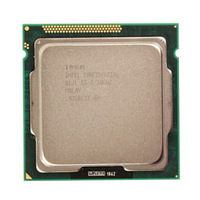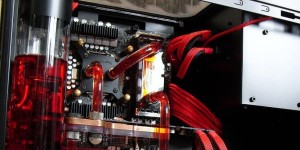When you get a new CPU and want to overclock it, typically you need to verify and stabilize your tested settings.
First off let us remind you that we always recommend increments of 100MHz on CPU frequency (from the default base clock frequency upwards).
In the first stage you overclock your CPU, in the second the RAM memory. Once you get a lockup or inability to boot, back down to the previous setting and typically that is your stable result in its highest threshold.
Be sure to run as much threads as your CPU supports, taking hyper-threading under consideration which essentially doubles the thread count.
For example:
- – Core i3 has two cores without/with hyper-threading = 2 threads / 4 threads
- – Core i5 has four cores without/with hyper-threading = 4 threads / 8 threads
- – Core i7 has 4 or 6 cores with hyper-threading = 8 / 12 threads
Just in case, make sure how many cores you have and whether you CPU supports hyper-threading or not. For your information, all 3rd Generation Intel Core CPUs are supporting hyper-threading.
The general formula for calculating your threads number is:
- Threads = Number of native threads + Number of virtual threads
- Native threads = Number of CPU cores
- Virtual threads = 2 x native threading (Only with hyper-threading support)
The program we are going to use is called MPrime. It is practically the Linux version of Prime95 – the most famous stability tester in Windows platform and still used by many overclockers worldwide.
First off, you have to download MPrime, go to http://mersenneforum.org/gimps/ and search for the latest Linux package. Currently, the latest version is mprime276-linux64.tar.gz (02-May-2012 01:05 4.6MB) for 64bit and mprime276.tar.gz for 32bit.
After you have got the correct file, extract the files into a directory:
Run the MPrime to test your system’s stability. This is a burn-in stressing tool, so make sure you have a descent cooling.
Let us know what other tools you use for your Linux overclocking and benchmarking. Comment below.







